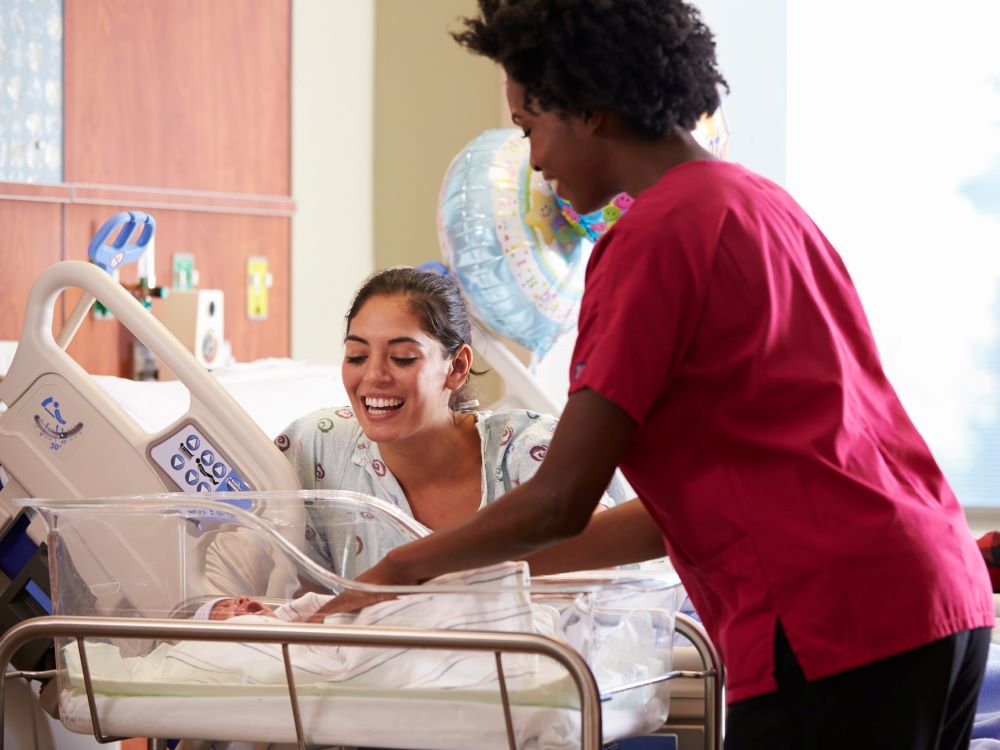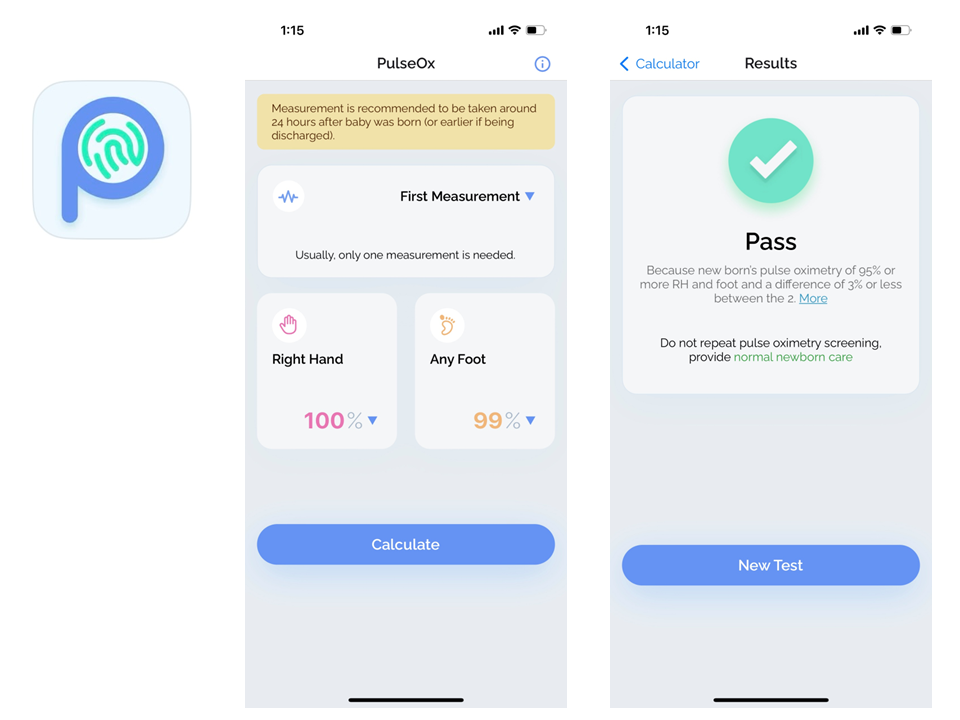CCHD PulseOx Screening App Improves Detection of Heart Defects in Newborns

Pulse Oximetry Screening is a life-saving test that can detect critical congenital heart defects (CCHD) in newborn babies. While the test is easy to perform, appropriate interpretation of the results can be challenging. In 2012, researchers at Emory and Children’s Healthcare of Atlanta developed the Pulse Ox Tool, an innovative app for smartphones that automates the Pulse Oximetry Screening test and offers a more efficient way to screen newborns for CCHD. Since its inception, Pulse Ox has been shown to lead to earlier diagnosis and, in turn, improved survival for children with CCHD.
Now, researchers at Georgia Clinical and Translational Science Alliance’s AppHatchery have retooled the app with new modifications that simplify and expedite the screening process and potentially lead to other important diagnoses beyond just CCHD. The latest version of the re-named CCHD PulseOx Screening app includes an updated algorithm to account for the latest newborn screening guidelines, improved usability, and wider availability across various mobile devices.

“The team at the AppHatchery was amazing to work with! From identifying opportunities for improvement to creating a new design to rolling out the new app – the team’s creativity and ingenuity were nothing short of impressive,” says Matt Oster, MD, MPH, Director, Children’s PEACH (Program to Evaluate and Advance Cardiovascular Health), Children’s Healthcare of Atlanta Cardiology, Emory University School of Medicine.
Clinical staff at newborn nurseries and pediatric hospitals across the country can download the CCHD PulseOx Screening app for free on the App Store or Google Play.
Download the free CCHD PulseOx Screening app today.
About Georgia Clinical & Translational Science Alliance (Georgia CTSA)
The Georgia CTSA is a statewide partnership between Emory, MSM, Georgia Tech, and UGA and is one of over 60 in a national consortium striving to improve the way biomedical research is conducted across the country. The consortium, funded through the National Center for Advancing Translational Sciences (NCATS) and the National Institutes of Health's Clinical and Translational Science Awards, shares a common vision to translate laboratory discoveries into treatments for patients, engage communities in clinical research efforts, and train the next generation of clinical investigators.

